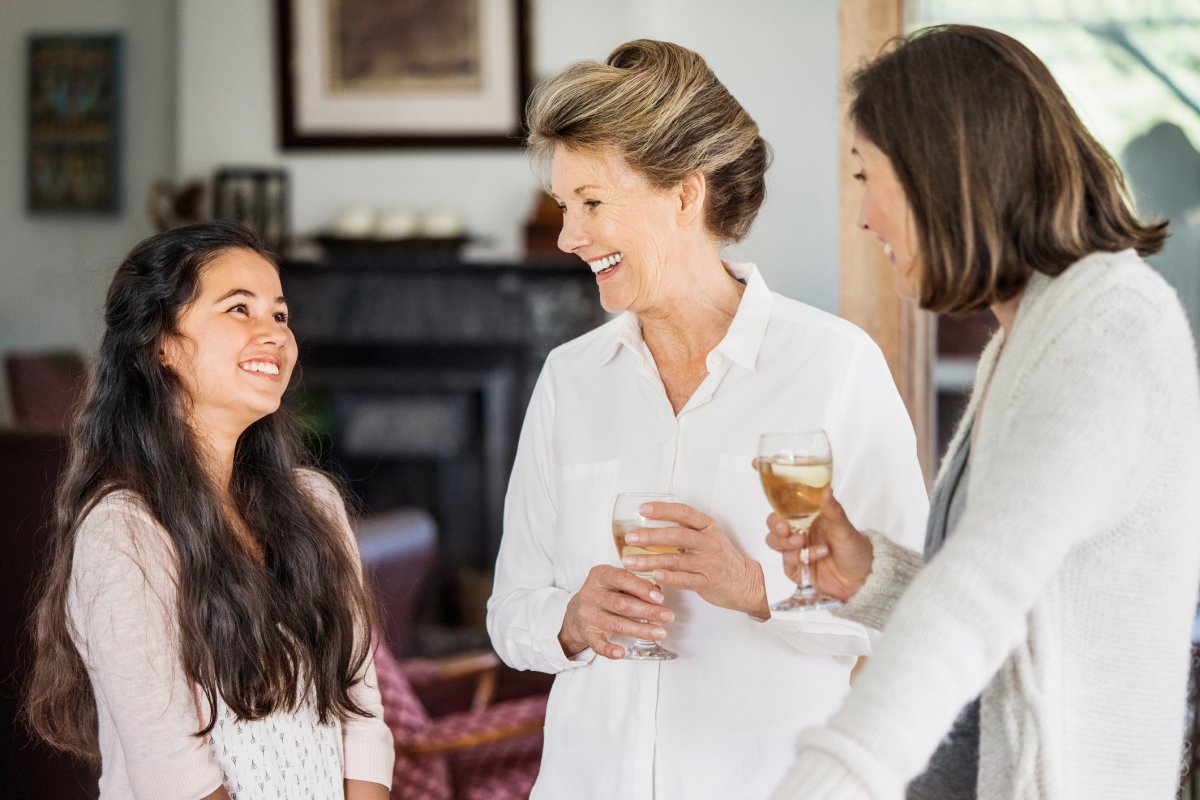Parents who engaged in moderate drinking around their children leave their kids feeling anxious, embarrassed and disrupt their bedtime, a new study suggests.

According to researchers at the Institute of Alcohol Studies (IAS), three in 10 parents admit to being drunk around their children and that parents who saw their parents engage in this behaviour are less likely to view their parents as role models growing up.
READ MORE: How parents manage conflict in the home will impact their children
The study, which surveyed almost 1,000 parents and their children, looked at the attitudes towards drinking in both parents and their children and found that parents do not have to regularly drink large amounts for their children to draw conclusions on alcohol.
Among the findings:
- 29 per cent of parents say they’ve been drunk in front of their children
- 51 per cent say they’ve been tipsy in front of their children
- 29 per cent thought it was OK to get drunk in front of their child, as long as it wasn’t a regular occurrence
When children witnessed their parents drinking, they reported experiencing several emotions, the study says.
- 18 per cent say they felt embarrassed
- 11 per cent say they felt worried
- 7 per cent say their parents argued with them more than usual
- 8 per cent say their parents were more unpredictable
- 12 per cent say their parents had paid them less attention
- 15 per cent say their bedtime routines had been disrupted
“Children are exposed to a barrage of marketing messages that glamourize drinking with strong links to sport and pop music,” Katherine Brown, chief executive of the IAS, said in a statement. “Parents have a tough job on their hands teaching children about the negative side of alcohol. Hopefully, this study will help inform guidance that enables parents to make fully informed choices about their own drinking in front of their children.”
However, parenting experts Gail Bell and Julie Freedman-Smith of Parenting Power say to take the findings of this study very lightly.
While the study is putting a negative spin on the subject, Bell and Freedman-Smith say this is actually a good teaching opportunity for parents.
“We feel very strongly about parents modelling behaviour,” Bell says. “Whether it’s drinking responsibly, eating responsibly or even texting when you’re driving – what are parents modelling to their kids about their behaviour and how to do those things responsibly so they can learn?”
Drinking in front of children is a way for kids to see and learn the family’s values around drinking and how one does that responsibly, Freedman-Smith adds.
READ MORE: How can you build resilient children?
For example, the attitudes around drinking and driving: Are you showing your child that you will not be getting behind the wheel? Do you have someone lined up to drive you home? What about the attitudes around binge drinking? Can you teach your child about drinking in moderation?
These are all lessons that can be learned in those moments, Bell and Freedman-Smith say.
So what parents need to do, Bell and Freedman-Smith say, is have a clear idea of what your values are and not only talk to your kids about them, but follow through on what you say.
“We always say kids live what they learn, and learn what they live,” Freedman-Smith says. “It’s scary when the people you’re relying on to keep you safe aren’t keeping you safe. So as parents, we can do our best job by getting clear on what our family believes in terms of helping our kids to feel safe and to feel like they’re responsible and healthy.”







Comments